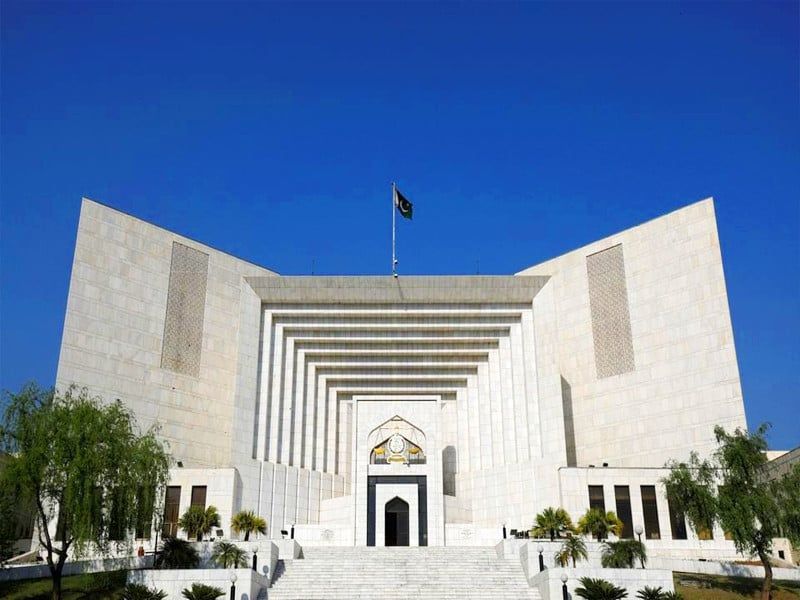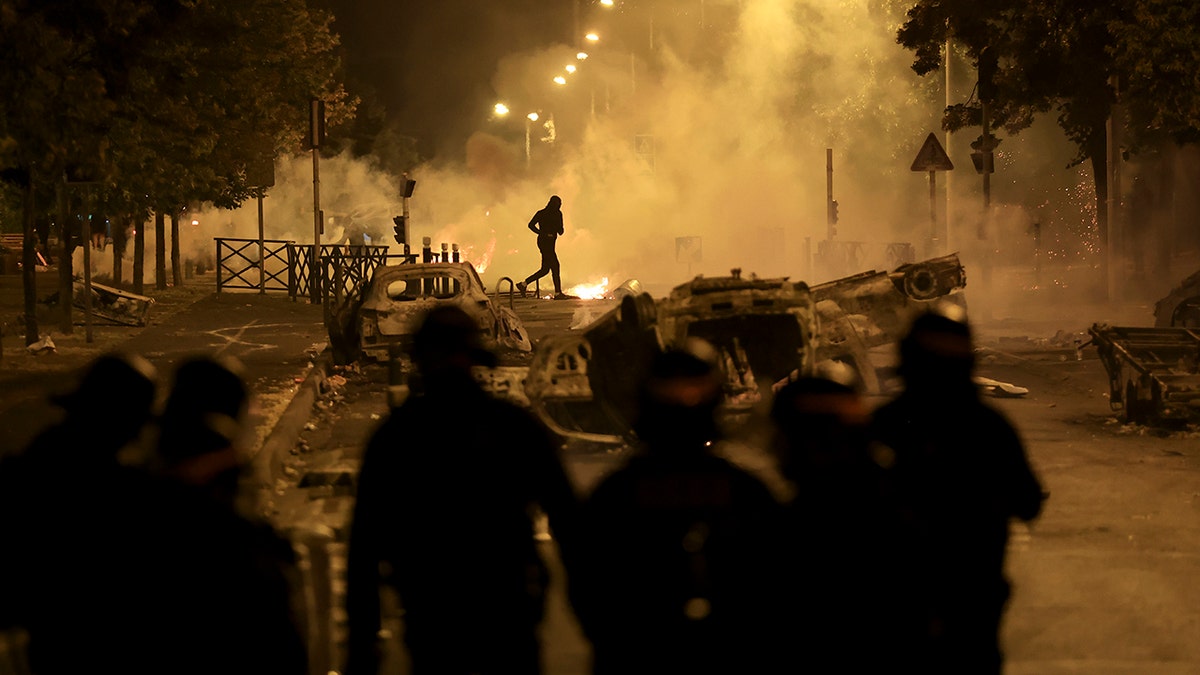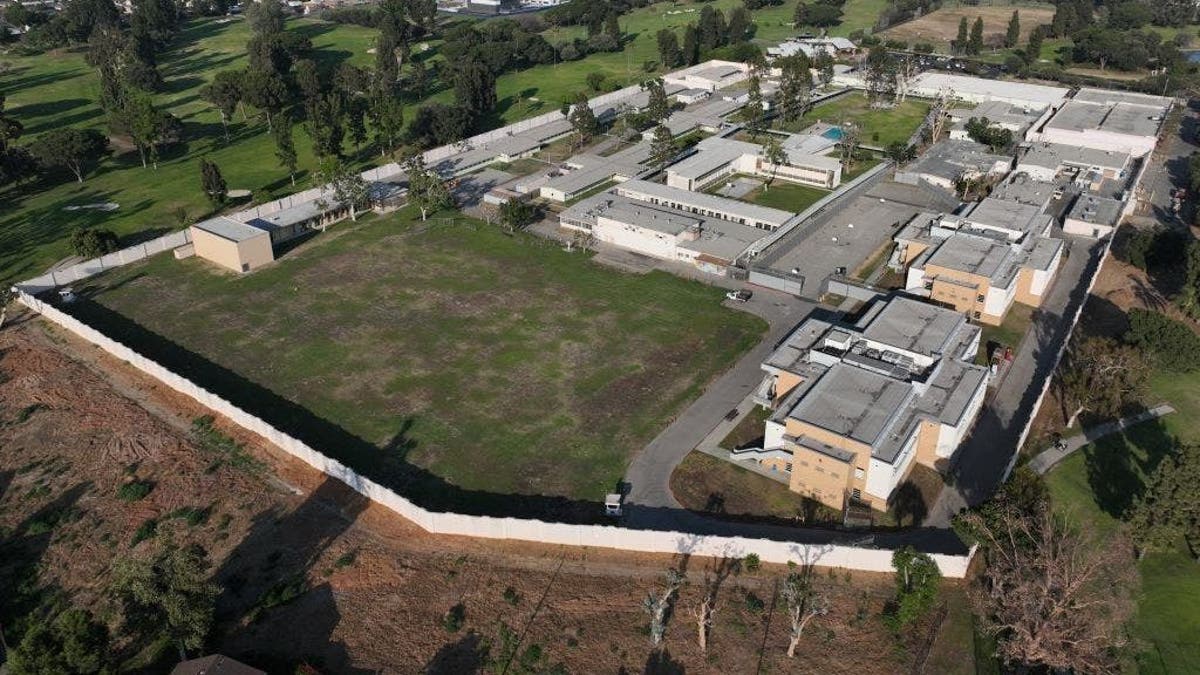
A division bench of the Supreme Court has exonerated its additional registrar of contempt charges but noted that both the SC committees responsible for listing cases before regular and constitutional benches "illegally" withdrew a case from the bench and are liable for contempt of court.
Interestingly, the committee responsible for listing cases before regular benches of the SC comprise CJ Yahya Afridi, Justice Syed Mansoor Ali Shah and Justice Aminuddin Khan
The three-member committee responsible for listing cases before the Constitutional Bench (CB) includes Justice Aminuddin Khan, Justice Jamal Khan Mandokhail and Justice Muhammad Ali Mazhar.
The bench comprising Justice Syed Mansoor Ali Shah and Justice Aqeel Ahmed Abbasi on Monday issued its written order in a contempt of court case initiated against Additional Registrar (Judicial) Nazar Abbas.
The bench issued show cause notice to Abbas over alleged contempt of court after a bunch of cases in which vires of Custom Act, 1969 were challenged were withdrawn from the bench and were referred back to the CB committee for re-listing.
The court noted that upon examining the case, it found that Abbas did not deliberately avoid the listing of the cases before the bench as directed in the court order.
"There is no evidence to suggest that he had any personal interest in the matter or had connived with any of the parties to the case, nor did he act with the intention of causing damage to any of the parties to the case. There is no indication of mala fide intent in his actions.
"In the absence of any such factors or elements of contumacy, his conduct cannot be considered contumacious, nor can it be said to have suffered from mala fides, requiring contempt proceedings.
"For these reasons, by accepting his explanation, the show cause notice issued against him for contempt proceedings is discharged," it said.
The court noted that it also deliberated on the question as to whether, following the discharge of the show-cause notice against the additional registrar (judicial), the matter should be considered concluded or whether it should proceed further against the members of the two committees.
The bench said the first committee led by CJ Afridi "unlawfully" withdrew the part-heard cases from a bench and transferred it for the consideration of the other committee, through an administrative order by undoing the effect of a judicial order.
"While the second Committee, in total disregard of the judicial order passed by the regular Bench, simply in pursuance of the direction of the first Committee, went ahead and fixed the case before the Constitutional Bench on 27 January 2025.
"Both the Committees were not legally authorized to take administrative decisions dated 17 January 2025 in violation of the judicial order," it added.
In this background, it said, it appears that the matter has to proceed further against the members of the two committees. "However, judicial propriety and decorum demand that the said question be considered and decided by the Full Court of the Supreme Court so that it is authoritatively decided once and for all," it added.
The bench made it clear that it was not referring the matter to the committee constituted under Section 2 of the Practice and Procedure Act, 2023 as its authority is limited to constituting benches
"The Full Court of the Supreme Court, however, is constituted by the Constitution itself under Article 176. The distinction between the benches of a Court and the Full Court is well-established and constitutionally recognized in the provisions of Article 203J(2)© and (d) of the Constitution and the responsibility of convening the Full Court conventionally falls within the domain of the CJ."
The division bench order also noted that no one is entitled to disobey or decline compliance with the court order merely because he believes it to be inconsistent with the Constitution and the law.
"When a Bench is seized of a case and has partly heard it, the matter becomes part of judicial proceedings, and the Bench hearing the case assumes exclusive jurisdiction over it.
"Any interferencewhether through withdrawal or reassignmentwithout judicial justification undermines the principle of judicial independence," it said
After unveiling of the verdict, a six-member larger bench that was hearing the additional registrar's intra-court appeal against the show cause notice issued by Shah led bench disposed of the ICA.
However, during the proceeding, head of the bench, Justice Jamal Khan Mandokhail asked as to how an order was issued when the contempt proceedings were terminated.
"The verdict [of Shah led bench] includes the chief justice among the alleged contemnors. Will those accused of contempt form the full court?" he questioned.
Justice Muhammad Ali Mazhar remarked that the contempt of court law lays out a complete procedure, which includes issuance of a notice first.
"Everyone in the world is entitled to the right to a fair trial under Article 10-A. Are judges who are held as contemnor not entitled to the protections of Article 10-A?"
"Will the full court formed include the four judges accused of contempt? They could have issued a notice, and we, the four judges, would have appeared before their court," He added.
Later, a majority of four judges stated in the short order that the intra-court appeal was disposed of, with detailed reasons to be provided later.
However, two judges, Justice Athar Minallah and Justice Shahid Waheed, agreed only to the extent of disposing of the case but disagreed with the majority of four judges on issuing detailed reasons.
QUOTE
When a bench is seized of a case and has partly heard it it assumes exclusive jurisdiction over it.
SC verdict








